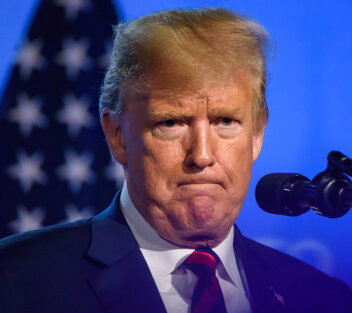
BIO SMUGGLING EXPOSED – Chinese Student ARRESTED!
Allegations of smuggling biological materials and firearms by Chinese nationals in the U.S. cast a shadow over international relations and security.
At a Glance
- Chengxuan Han, a Chinese national, faced charges for smuggling biological materials intended for a University of Michigan lab.
- Han’s case is part of a broader set of accusations involving smuggling by Chinese nationals in Michigan.
- Shenghua Wen, another Chinese national, pleaded guilty to transferring firearms and technology to North Korea.
- The FBI’s counterintelligence division is actively investigating these incidents.
Smuggling Allegations Faced by Chengxuan Han
Chinese PhD student Chengxuan Han, from Wuhan, has been arrested in the U.S. for allegedly smuggling biological materials to the University of Michigan. Han reportedly used four packages to send concealed substances linked to roundworms. Upon arriving at Detroit Metropolitan Airport, officials noted she had deleted sensitive information from her electronic device days prior. During interrogation, she admitted to making false declarations to U.S. Customs and Border Protection.
Concerns over potential national security breaches have arisen amid accusations of Han’s smuggling activities. U.S. Attorney Jerome F. Gorgon, Jr. described it as a significant threat. Despite such accusations, the University of Michigan maintains they had no ties to Chinese governmental funding related to Han’s research. Han’s arrest follows two other similar cases involving Chinese nationals within a week in Michigan.
Shenghua Wen’s Arms Transfers to North Korea
Shenghua Wen, another Chinese national, was found guilty of illegally exporting firearms and advanced military items from the U.S. to North Korea. Operating under directives from North Korea, Wen shipped firearms from California to China before forwarding them to North Korea in 2023. He later confessed that he lacked the necessary licenses for such exports, marking a clear violation of U.S. export laws. The potential ramifications for his actions could result in a 20-year prison sentence for violating the International Emergency Economic Powers Act.
“The alleged smuggling of biological materials by this alien from a science and technology university in Wuhan, China—to be used at a University of Michigan laboratory—is part of an alarming pattern that threatens our security,” – U.S. Attorney Jerome F. Gorgon, Jr.
Additionally, Wen admitted to preparing another shipment of 60,000 rounds of 9mm ammunition to North Korea. His actions complicate diplomatic relations and pose serious security threats. The continuous involvement of multiple Chinese nationals in such activities has raised alarms within the U.S. intelligence community, urging heightened vigilance.
Broader Implications
The Chinese Consulate General in Chicago has expressed concerns over U.S. law enforcement’s approach, criticizing perceived political manipulation of these cases. Both cases underscore ongoing diplomatic tensions between the U.S. and China. International espionage and smuggling allegations invariably complicate bilateral relations, demanding intricate diplomatic negotiations. A firmer stance on national security, coupled with stringent measures, is crucial in safeguarding American interests.
“The alleged actions of these Chinese nationals — including a loyal member of the Chinese Communist Party — are of the gravest national security concerns.” – U.S. Attorney Jerome Gorgon.
Ultimately, these unfolding legal cases spotlight a broader issue: the intersection of technological advancements and national security. As international collaborations and exchanges become commonplace, due diligence and verified partnerships play an increasingly pivotal role in pre-empting security breaches and maintaining global stability.



